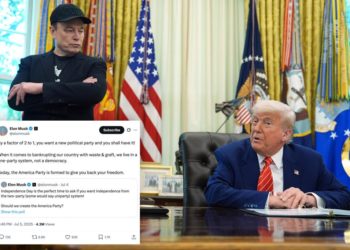How to Watch Los Angeles Sparks vs Indiana Fever: Live Stream WNBA, TV Channel
The Indiana Fever (9-8) play host to the Los Angeles Sparks (5-13) on Saturday night. Indiana comes in on a...
How to Watch Grizzlies vs. Thunder: Live Stream NBA Summer League Salt Lake City, TV Channel
The Memphis Grizzlies take on the Oklahoma City Thunder on Saturday in NBA Summer League action out of Salt Lake...
The Girls Camp Devastated by Flooding in Texas Is Nearly a Century Old
Camp Mystic, the Christian summer camp for girls on the Guadalupe River that was devastated by catastrophic flooding on Friday,...
Khamenei Appears in Public for First Time Since Israel War Began
Iran’s supreme leader, Ayatollah Ali Khamenei, appeared publicly on Saturday night for the first time since the 12-day war with...
‘Modern Family’ star Julie Bowen thought she was ‘gonna die’ after learning she needed a pacemaker at age 29
NEWYou can now listen to Fox News articles! At age 29, Julie Bowen got a pacemaker. The “Modern Family” alum...
Elon Musk says he’s creating new ‘America Party’ to counter Trump
Billionaire tech mogul Elon Musk announced Saturday he’s launching a new political party — the latest salvo fired in his...
Elon Musk Says He Will Start a New Political Party
Elon Musk, the world’s wealthiest person and the country’s biggest political donor, said on Saturday that he would create a...
Santa Ana City Council takes action to support immigrant community amid rising enforcement concerns
In a unanimous decision on Tuesday, July 1, the Santa Ana City Council passed a series of measures aimed at...
Iran’s supreme leader appears in public for first time since start of conflict with Israel
Iran’s Supreme Leader Ayatollah Ali Khamenei attended a religious gathering on Saturday, according to Iranian state media outlet Press TV,...
For the Parents of Camp Mystic, an Agonizing Wait for Their Missing Children
In the leafy neighborhoods of Dallas, Houston and Austin, from where Camp Mystic in the Texas Hill Country draws many...

















